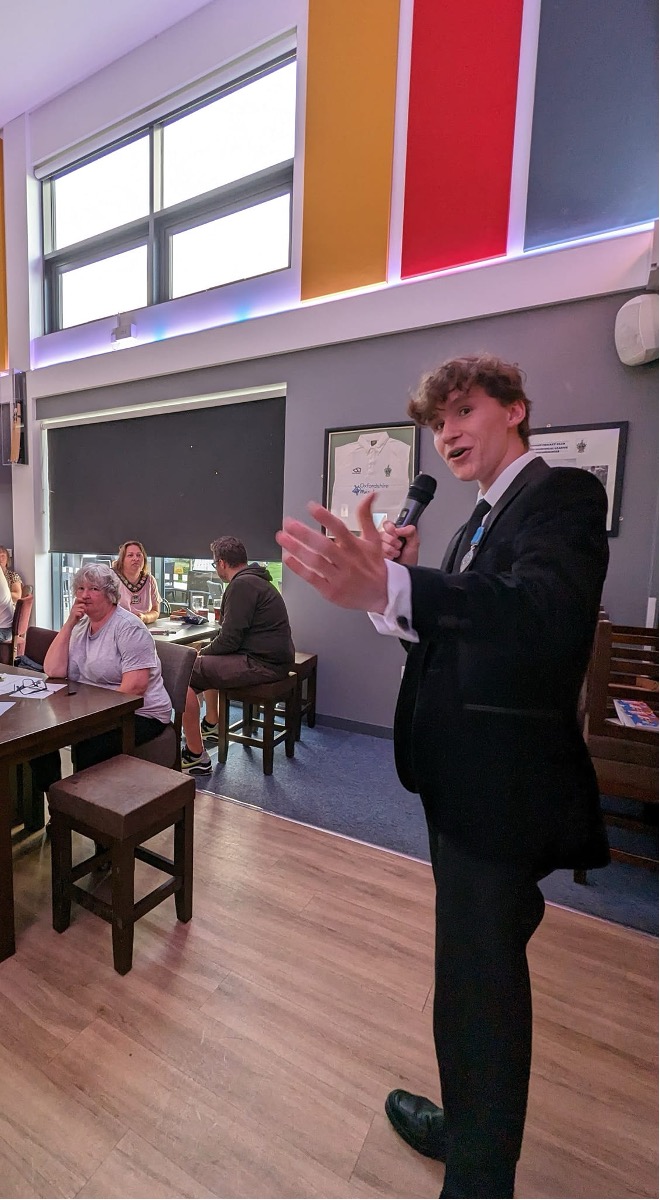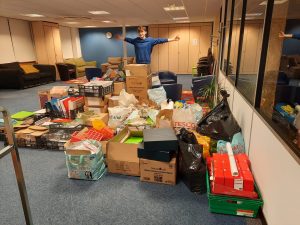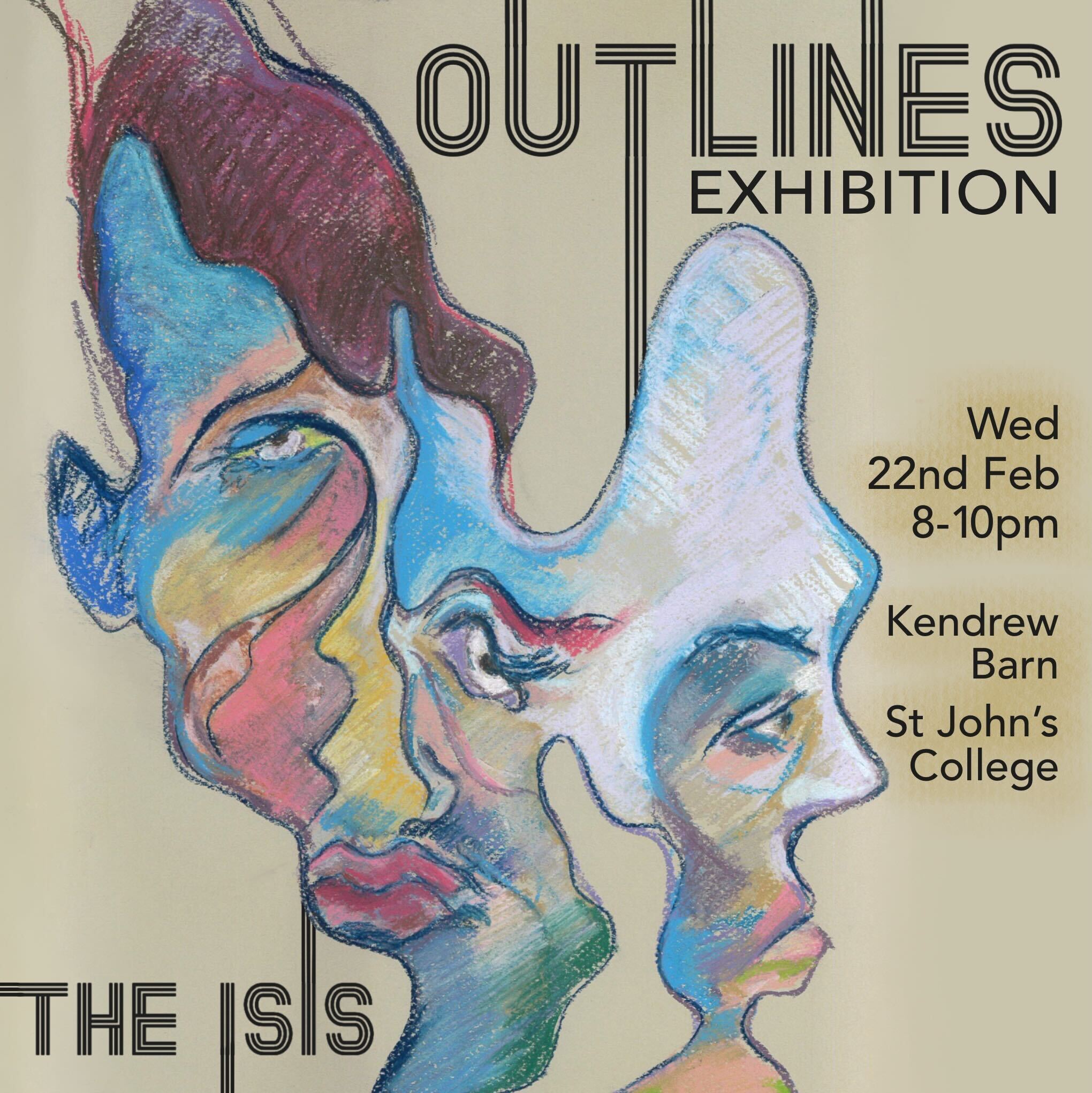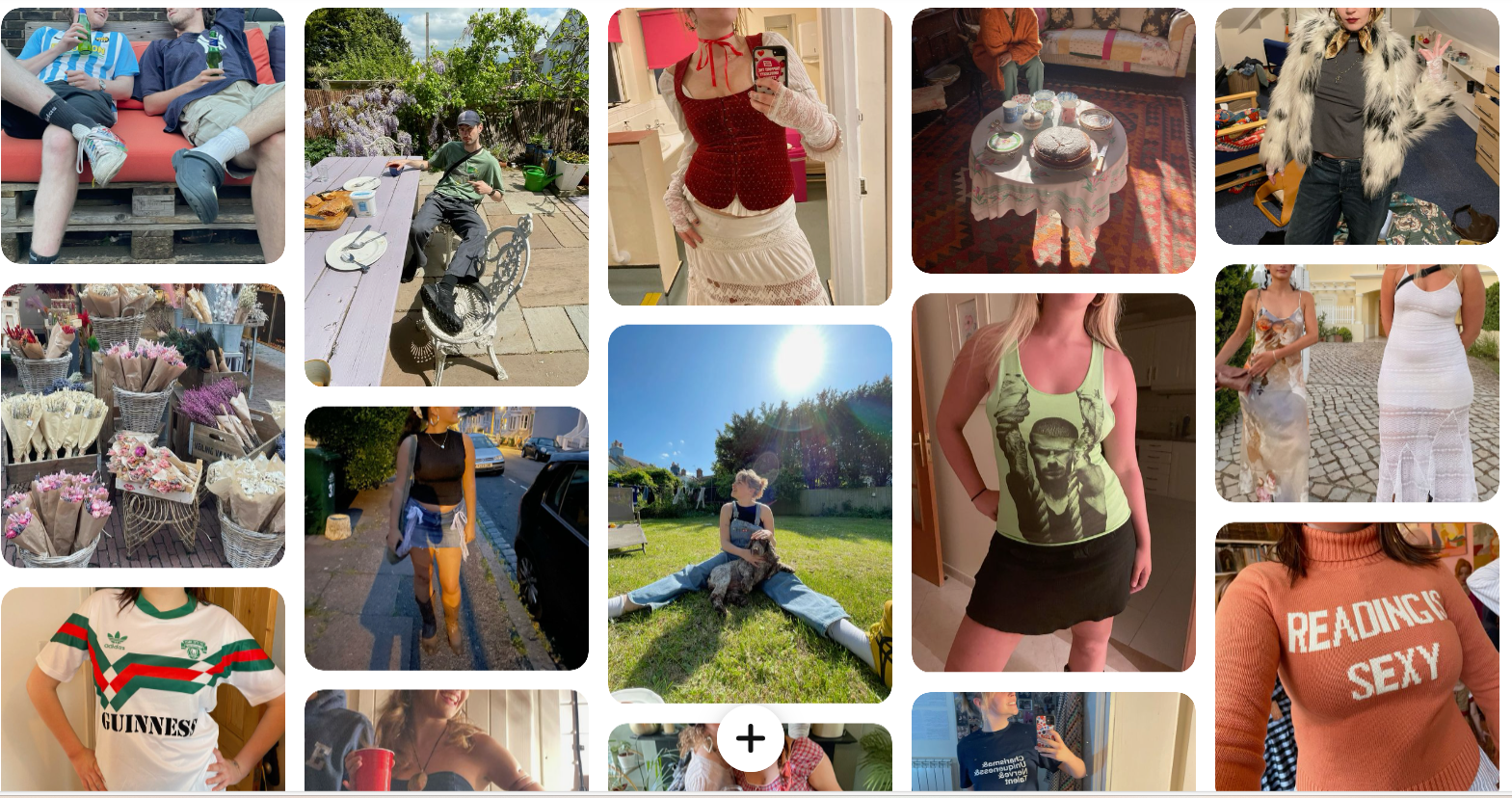
Icon of the Week: Daniel Lloyd BCyA, Founder of Markers for Mindfulness

“I know what it’s like not having enough paper to colour things in and bring drawings home for my mum to put on the fridge.” This is one of the first things Daniel shares with me. We’re sitting in his room, the window slightly ajar. He’s sipping a hot chocolate while I drain the coffee from my pink mug. Daniel is the founder of Markers for Mindfulness, a charity started in 2020 which redistributes unused stationery from the public to the schools that need it most. Oh, and also, he’s got post-nominal initials: it’s not just Daniel Lloyd, it’s Daniel Lloyd BCyA. He was awarded the British Citizen Youth Award in January 2021 for his remarkable work collecting and redistributing stationery worth £60,000 (you read that, alright) for schools in Didcot.
When I ask Daniel to sum up Markers for Mindfulness, his eyes light up. “The local community has lots and lots of stationery. Whether it be in random cupboards in your house that are collecting dust– or just pens and pencils lying around– Markers for Mindfulness works to collect that stationery.” What does he do with it all? “I sort it out, I sharpen pencils, I put things into boxes.” Then, he hosts a larder-style event in a space accessible to the community, sort of like a food bank for school supplies, where teachers can collect “exactly what they need.” It’s refreshingly simple.
I get the ‘markers’, but why the ‘mindfulness’? Daniel tells me he grew up in Oxford, “in Blackbird Leys, which is still Oxford’s biggest council estate”. There, he learnt what it was like to “experience budget cuts” as a child. He tells me teachers were taking it upon themselves to buy “glue sticks and whiteboard pens with their own paycheck.” Daniel believes this would take a toll on any young child’s wellbeing: if “you’re going into school and you can’t colour, and your teachers are saying to you, ‘look, this year we can’t make Mother’s and Father’s Day cards, we can’t make Christmas cards for you to send home, because we don’t have enough paper at this point in the term’, that does impact a child’s ability to play.”
In 2019, Daniel’s best friend, Harry, took his own life. Daniel had just turned 14 and Harry was 13 at the time: “It completely shattered my world, in essence, because it was so sudden and so unexpected. Harry was a force in my life. He’d come into any room and it was genuinely as if the blinds had been opened and the sun started shining. He could talk to anybody and you could talk to him for hours about anything. He was so funny and so kind, and he had the best kind of cheeky smile. He was incredible.”
Daniel and Harry were classmates, too. Daniel shares that “losing him, somebody who I sat next to in lessons, somebody who I shared a love of my favourite subject, literature, with, it shifted my mindset about life, really.” He tells me that his grief was a key reason behind starting Markers for Mindfulness. “For a long time, I didn’t want to move forward. I wanted to stay as close as I could to that moment in time, with him, lost in the past.”
Daniel’s school support system was drastically underfunded to help students cope with the tragedy. Including the sixth form, there were over 1,000 students, ten of which could receive counselling at any time. Daniel tells me this number is “in Didcot and into Oxfordshire and beyond.” In the wake of Harry’s passing, surveys were put out to the students to see if they knew how to access the limited support that the school had. “The answer was overwhelmingly a ‘no’. Either students weren’t sure where to go, or they weren’t sure what existed. That’s frankly because not a lot existed.” Teachers “had to be very restrained and look for the cases where they thought ‘okay, that student really needs our support, so we can put out that branch and offer it.’”
Looking back, Daniel says the “biggest takeaway is that sometimes [teachers] caring and wanting to support someone unfortunately isn’t enough. Teachers were able to see that I was grieving the loss of my best friend very intensely. And they desperately wanted to support me, while also grieving the loss of a student themselves. They offered everything they could.” He tells me “Harry was a friend to practically everybody in our entire school year… there was just simply no way that all of these 13-and-14-year-old students grieving could be supported.”
Fast-forward to 2020: Daniel started the project as a direct reaction to further budget cuts in Oxfordshire. The way he sees it, the pandemic took the political limelight and left the education system’s struggles on the backburner: Daniel refers to the “pervading mindset that the country had ‘bigger problems’ – bigger fish to fry.” He felt like the government decided it was “okay for state education to sit in its silent suffering.” He admits that then “I learnt that there is a kind of silent tragedy that goes on in state education.” Frustrated at a lack of political action, and seeking advice on starting a charity, Daniel went to an MP, who instead advised him to ‘focus on your own education…keep the tunnel vision on yourself and don’t worry too much about what’s going on around you’. Losing Harry was still a shock to his school’s community, and, as Daniel eloquently puts it: “It was the right time for me… I wanted to give rather than stay static. I wanted to move forward and make a difference because I could see how much the teachers cared but they simply didn’t have the resources to do it.”
Now, Daniel sees teachers being “almost villainized when it comes to things like strikes… when actually, the teachers care more than I think we’ll ever know about the students. It’s just the case of them needing the support and the infrastructure to do it.” He strongly believes that by “providing schools with the basics that currently take up literally all of their budget (a school will buy their printer paper and then they’ll run out of money), some of that money, as it has done in a couple of schools in my local area, can go instead to training their teachers in mental health first aid.”
Mental health first aid is something close to Daniel’s heart. He fundraised (through colour runs and bake sales) the money single-handedly for around 30 teachers in Didcot to receive training in the summer of 2019, and plans on providing for another 60 this coming March. He still sees the impact today: “Every single time I go back [to my school], I have a teacher come up to me and say, ‘I used this technique today, from the mental health training, and it changed the direction of a student’s day.’”
Playing devil’s advocate, I ask Daniel what he’d say to someone who read this and saw it as an exceptional story; not a common one. Also, what does he propose about mental health crises in private schools, too? Daniel recognises “there are certainly schools and areas where the situation is worse than others, but mental health is unique for being universal, and I think it’s becoming increasingly hard to be a young person in the world. And so, while not all state schools may be running out of paper, at the same time, there are students who still don’t have access to the support for their mental health that they need.”
I want to take us all the way to 2024, to hear what he’s been working on recently here in Oxford. He tells me he’s looking to use the university’s infrastructure to really expand the charity. “It’s a very dense city”, he tells me, “there’s lots going on, all at the same time. And it’s very hard when you live in the centre as a student to see what’s going on in the outskirts.”
What’s the vision? Daniel wants Markers for Mindfulness to become a “national name.” If he’s come this far in Didcot, a “tiny little town” (his fond words, not mine), why not even further?
When he starts telling me about his dream to expand the charity’s horizons, he sits up in his seat. I’m all ears: “Imagine what could happen if you had little franchises, little versions of the project running in cities all across the country. The impact of it could be so huge, because it’s about communities giving back things that already exist.” And the beautiful thing is, “all of this stuff already exists, it’s just about creating a network, putting schools into connection with the project.” Daniel’s been in meetings all term: he’s been in touch with various voices; from the principal of Lady Margaret Hall and the Student Union, to the local county councillors and local businesses. I like to imagine he’s worn the same pink shirt to each meeting (he rocks it). Daniel loves that “everybody at all different levels can get involved.”
How can you get involved? It’s simple – donate any old pens lying in your old desk drawers, or any notepads you’ve scrapped for your fancy new iPad (collection points will be up across Oxford soon). Or, if you spot somewhere that looks like a popular spot for collecting stationery, or just want to be involved in the organisation in general, get in touch with Daniel himself. Later in the term, Daniel will be setting up a larder-style event and he’ll need “hands to come and help out.”∎
You can get in touch with Daniel on Instagram @Markers_For_Mindfulness, or read more on his website: markersformindfulness.org.uk
Words by Bella Gerber-Johnstone. Photo courtesy of Daniel Lloyd.







